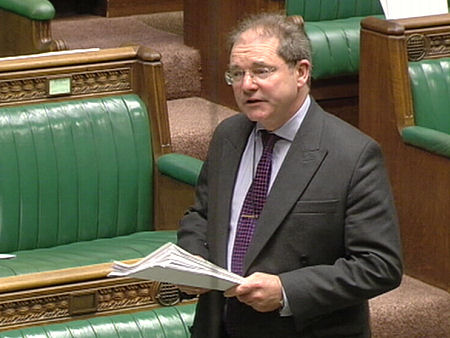29 October 2008
Mr. Clifton-Brown: The Minister may be interested to know that the Conservative party this summer took 100 people to Rwanda, entirely in their own time and at their own expense, and will be taking 200 people next year to take part in such programmes.
My question is about the fact that the UK has a 10-year memorandum of understanding, and a considerable amount of money is going to Sierra Leone, which has one of the poorest poverty indices of any country on the planet. The International Monetary Fund also gives a considerable amount of money for poverty reduction, and has been critical about the rate of progress in reducing poverty in Sierra Leone. How is DFID getting on in that respect?
Mr. Lewis: I welcome the fact that the Conservative party is sending people to experience and contribute in the developing world. That is a good thing and Members on both sides of the House would applaud it.
To deal specifically with the hon. Gentleman’s question about poverty reduction, we have been providing poverty reduction budget support to Sierra Leone since 2002. Our annual contribution is between £10 million and £13 million. That support is given alongside that of other donors in Sierra Leone: the World Bank, the European Community and the African Development Bank. The provision of budget support since the end of the war was not without risks, but it secured macro-economic stability, without which peace would have been much more difficult to achieve. Alongside that poverty reduction spending by the Government has been protected, and the Government have made significant progress in improving their financial management systems, albeit from a low base. We are reviewing how to maximise the impact of providing budget support as we look across the programme of support for the next five years.
| Hansard
My question is about the fact that the UK has a 10-year memorandum of understanding, and a considerable amount of money is going to Sierra Leone, which has one of the poorest poverty indices of any country on the planet. The International Monetary Fund also gives a considerable amount of money for poverty reduction, and has been critical about the rate of progress in reducing poverty in Sierra Leone. How is DFID getting on in that respect?
Mr. Lewis: I welcome the fact that the Conservative party is sending people to experience and contribute in the developing world. That is a good thing and Members on both sides of the House would applaud it.
To deal specifically with the hon. Gentleman’s question about poverty reduction, we have been providing poverty reduction budget support to Sierra Leone since 2002. Our annual contribution is between £10 million and £13 million. That support is given alongside that of other donors in Sierra Leone: the World Bank, the European Community and the African Development Bank. The provision of budget support since the end of the war was not without risks, but it secured macro-economic stability, without which peace would have been much more difficult to achieve. Alongside that poverty reduction spending by the Government has been protected, and the Government have made significant progress in improving their financial management systems, albeit from a low base. We are reviewing how to maximise the impact of providing budget support as we look across the programme of support for the next five years.
| Hansard

